I was very proud to have been invited by the Institute of Marine Sciences – National Research Council (ISMAR-CNR) in Venice who developed on the European Science Foundation Platform, the Exploratory Workshop: Marine woodborers: New Frontiers for European Waters. And I have to say that that was one of the most exciting research opportunities I have taken part of in the recent past.
The European Science Foundation (ESF) was established in 1974 to provide a common platform for its Member Organisations to advance European research collaboration and explore new directions for research. Currently it is an independent organisation, owned by 67 Member Organisations, which are research funding organisations, research performing organisations and academies from 29 countries.
The focus of the Exploratory Workshops scheme is on workshops aiming to explore an emerging and/or innovative field of research or research infrastructure, also of interdisciplinary character. Workshops are expected to open up new directions in research or new domains. It is expected that a workshop shall conclude with plans for follow-up research activities and/or collaborative actions or other specific outputs at international level.
The organisers, namely Davide Tagliapietra, Erica Keppel and Marco Sigovini – all from the ISMAR-CNR- did an amazing job in organising this much needed research group and by planning an excellent working programme.
The topic, centred on Marine woodborers is of utmost important as these organisms are a threat to maritime structure and archaeological heritage. Recently, an increase in attack and a northward spread has been reported. Despite the ecological, economical and cultural importance, research on this subject is carried out by few scientists scattered across Europe. An interdisciplinary approach is needed to reach a synthesis of knowledge and a deeper understanding of the causal factors. The main outcome of the workshop is the establishment of a research network aiming to coordinate scientists with an European perspective and a global view. Through the establishment of such a network, new theoretical and technical developments could be achieved.
The agenda of the workshop was to focus on:
1) bringing together experts in complementary fields that have hitherto not collaborated as a group;
2) identifying additional research competences that are not covered within the group of participants;
3) identifying, exchanging and sharing research interests for future joint leading research projects and developing an application strategies;
4) the establishment of an international network on marine woodborers.
Despite the subject ([wood-]‘boring’ organisms), there wasn’t a single dull moment. It was very exciting to spent a considerable amount of time with international peers coming from as far as Colombia and discussing the problems surrounding these particular organisms.
All sessions were extremely interesting and productive and I totally enjoyed chairing one of them in the Knowledge Café, with my hat of maritime archaeologist whose research interest based also based on marine organisms and global changes, but I am also one of few who combines degradation and protection of the cultural heritage and marine science. The Knowledge Café focussed on Systematics and biogeography, Marine woodborer-microorganism interactions, Protection of shipwrecks and maritime structures. Each group discussed weaknesses: Problems, constrains and bottlenecks, Strengths: Opportunities, synergies, and Perspectives: Solutions, actions and recommendations.
19 international peers attended, which was by invitation only, this amazing opportunity, some of which were old friends and some of which have become reference points for my current and future research on wood borers.
All with the amazing architectural beauties of a tiny Venetian island just in front of one of the world most famous squares: San Marco square!
Paola Palma 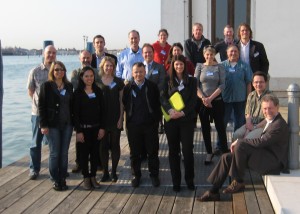
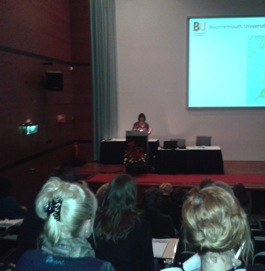
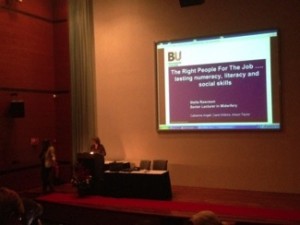

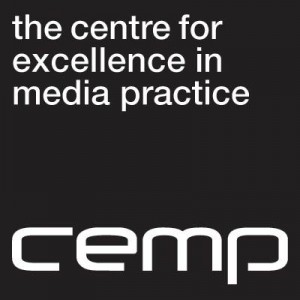

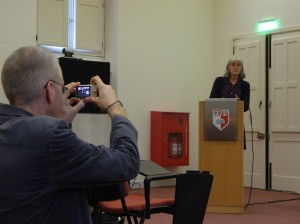
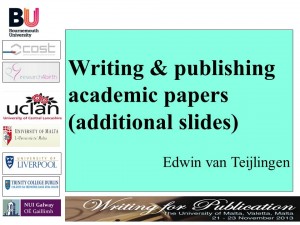
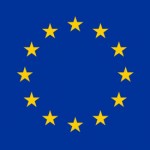
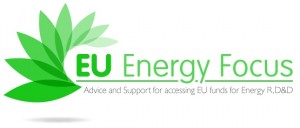



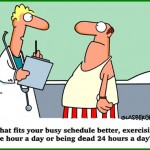

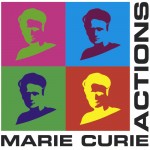


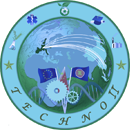
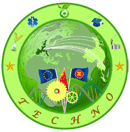


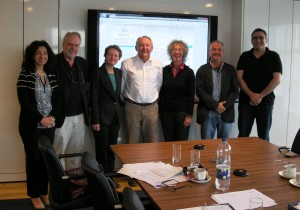

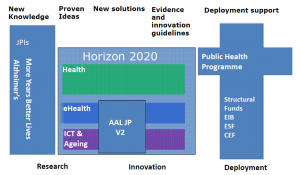
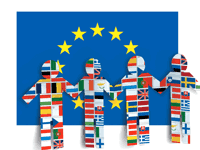
 COST
COST
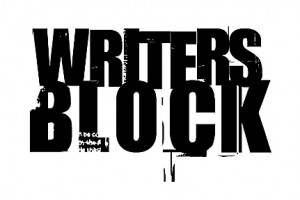












 SPROUT: From Sustainable Research to Sustainable Research Lives
SPROUT: From Sustainable Research to Sustainable Research Lives BRIAN upgrade and new look
BRIAN upgrade and new look Seeing the fruits of your labour in Bangladesh
Seeing the fruits of your labour in Bangladesh Exploring Embodied Research: Body Map Storytelling Workshop & Research Seminar
Exploring Embodied Research: Body Map Storytelling Workshop & Research Seminar Marking a Milestone: The Swash Channel Wreck Book Launch
Marking a Milestone: The Swash Channel Wreck Book Launch ECR Funding Open Call: Research Culture & Community Grant – Application Deadline Friday 12 December
ECR Funding Open Call: Research Culture & Community Grant – Application Deadline Friday 12 December MSCA Postdoctoral Fellowships 2025 Call
MSCA Postdoctoral Fellowships 2025 Call ERC Advanced Grant 2025 Webinar
ERC Advanced Grant 2025 Webinar Update on UKRO services
Update on UKRO services European research project exploring use of ‘virtual twins’ to better manage metabolic associated fatty liver disease
European research project exploring use of ‘virtual twins’ to better manage metabolic associated fatty liver disease